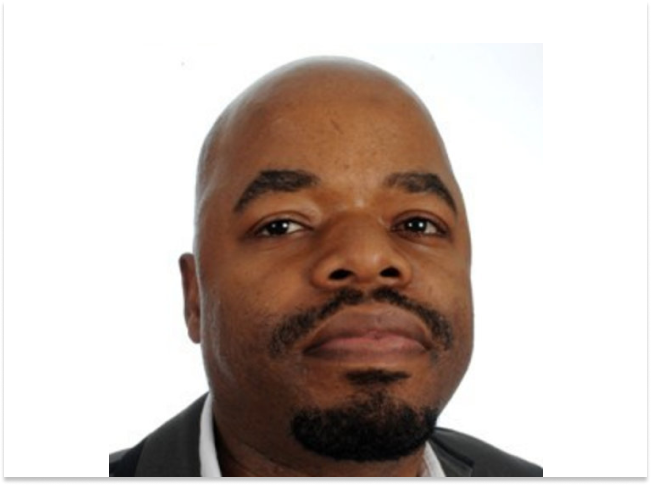
Mduduzi Biyase

Mduduzi Biyase is the director of the Economic Development and Well-being Research Group (EDWRG) and an associate professor of economics at the School of Economics, University of Johannesburg. He specializes in development economics, with a particular focus on exploring remittance behavior, poverty, environmental quality, unemployment, inequality, well-being economics, and gender-related topics. He has an extensive publication record, contributing significantly to the academic discourse on poverty, well-being economics, remittances, and economic growth. Additionally, he has played a crucial role in coordinating several successful large-scale research projects for the government, the South African Reserve Bank, and other institutions
Follow Mduduzi on
Website
Follow Mduduzi on
Website
Mduduzi Biyase is the director of the Economic Development and Well-being Research Group (EDWRG) and an associate professor of economics at the School of Economics, University of Johannesburg. He specializes in development economics, with a particular focus on exploring remittance behavior, poverty, environmental quality, unemployment, inequality, well-being economics, and gender-related topics. He has an extensive publication record, contributing significantly to the academic discourse on poverty, well-being economics, remittances, and economic growth. Additionally, he has played a crucial role in coordinating several successful large-scale research projects for the government, the South African Reserve Bank, and other institutions
In their own words…
IEA – Can you tell us a little bit about your life story, what got you interested in economics, and how you decided to pursue an academic career?
Mduduzi – I grew up in a small village called Hlokozi in southern KwaZulu-Natal, South Africa. I started my education in local public schools within the vibrant community of my childhood. Although my parents didn’t have formal schooling, my father recognized the life-changing potential of education and invested significantly in my education.
When I stepped into university, I found myself captivated by economics—far more than by any other subjects. I would spend countless hours reading both prescribed and unprescribed first-year economics books.
As the semesters progressed, I began to actively participate during lecture and in tutorial sessions. Sometimes, I would share my insights with other students, explaining economic concepts in study groups. This process helped reinforce my knowledge and increased my passion for economics. One day, while enthusiastically explaining some economic concepts to a group of students, I caught the attention of a former professor of mine, the late Prof. Norman Bromberger. After I finished explaining these concepts, he invited me to his office to talk. We discussed everything—my life, my future intentions, and where I came from.
Upon learning about my story, he offered me an amazing opportunity to stay with his family. I learned a lot from him—academically. Staying with him and learning from him shaped my academic path, and I can honestly say that I owe a significant part of where I am today to his guidance. His support ignited my ambition to pursue a career in academia, specifically in economics.
IEA – In your recent work, you study the determinants of renewable electricity development (RED) in Europe. Can you briefly summarize your findings? What made you interested in this topic?
Mduduzi – In my recent study on renewable electricity development (RED) in Europe from 2000 to 2018, we examined 35 countries and found that strong governance factors—such as control of corruption, the rule of law, voice and accountability, and institutional quality—positively influence RED. Most of these factors have a two-way relationship with RED, showing that they depend on each other. However, government effectiveness and regulatory quality did not have a significant impact on RED. These insights emphasize the importance of enhancing governance and institutional frameworks to effectively support the growth of renewable electricity in Europe.
My interest in renewable electricity development (RED) stems from a deep concern about climate change and its impact on communities, especially in developing countries.
IEA – Another paper you worked on was the spatial impact of foreign direct investment on ecological footprint in Africa. Can you briefly summarize your findings?
Mduduzi – Our research showed that foreign direct investment (FDI) and ecological footprints in neighboring countries significantly affect a host country’s environmental quality, indicating that environmental issues are interconnected across borders. Initially, FDI can reduce ecological harm, but as investment increases, the use of energy-intensive machinery leads to greater degradation.
Based on these findings, we recommend that African governments strengthen environmental regulations, promote renewable energy, and offer incentives like tax holidays for green projects. Regional cooperation is also crucial for coordinated sustainability policies, and the African Development Bank (AfDB) should help develop a roadmap for environmental sustainability.
IEA – Why is this research relevant today?
Mduduzi – This research is relevant today because it addresses the urgent challenge of climate change by examining how foreign direct investment (FDI) impacts ecological footprints. With rising FDI in many African nations, understanding the thresholds that lead to ecological degradation helps policymakers balance economic growth and environmental protection. Additionally, the interconnectedness of environmental issues underscores the need for regional cooperation in addressing these challenges. As the world shifts toward renewable energy, our findings emphasize the importance of promoting sustainable practices and energy-efficient technologies, aligning with global goals for sustainable development.
IEA – Why is it important for economic research to be diverse and inclusive?
Mduduzi – It is important for research to be diverse and inclusive because it encourages various perspectives, leading to nuanced insights and a broad understanding of socio-economic problems. Inclusive research also promotes balanced resource sharing and contributes to a more equitable society.